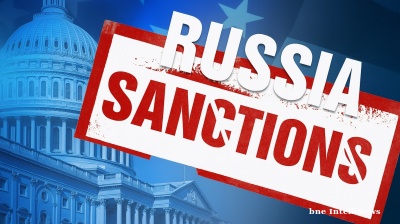When Donald Trump picked up the phone en route to his meeting with Russian President Vladimir Putin in Alaska on August 15, his brief call with Belarusian leader Alexander Lukashenko marked an unprecedented diplomatic moment. It was the first time in Lukashenko’s 31 years in power that a sitting US president had spoken to him—an event less significant to Trump’s agenda that day, but momentous in Minsk.
“The conversation was a breakthrough for Minsk,” noted Artyom Shraibman, a political analyst writing for the Carnegie Endowment for International Peace. “It seems that months of cautious contact with Washington, measured concessions, and concerted messaging from Lukashenko eventually produced the desired result.”
That Trump referred to Lukashenko as “highly respected President” on social media only added to the symbolism, given the West’s long-standing refusal to recognise him as the legitimate head of state following the violently disputed 2020 election. He also thanked Lukashenko for releasing 16 political prisoners—although he avoided using the word “political”—and said he hoped more would follow.
“Trump’s social media post was significant,” said Shraibman. “It broke with the West’s practice since 2020 of not calling Lukashenko ‘president’. And the willingness to meet him in person, even without a set date, was a diplomatic win for Minsk.”
In a second post two days later, Trump urged Lukashenko to release more detainees, claiming there were up to 1,300 political prisoners—higher than most human rights estimates. According to Shraibman, several factors explain this apparent shift in stance.
“Firstly, Lukashenko has been releasing small groups of prisoners, including US citizens, over the past year,” Shraibman wrote. “This tactic seems to have convinced Washington that it can do business with Minsk. As a bonus, it enables Trump to demonstrate his effectiveness where his predecessor and European leaders have failed.”
A second reason, he said, was the success of Belarusian civil society in making political prisoners central to Western engagement with Minsk. “Sanctions have been linked to it for many years,” Shraibman wrote.
But perhaps most crucially, Belarus has positioned itself as a useful go-between amid US-Russia talks on Ukraine. Trump’s informal envoy, lawyer John Coale, has visited Minsk twice, with Shraibman noting, “The Trump-Lukashenko call a few hours before Trump’s encounter with Putin in Alaska suggests that the Belarusian leader is playing some sort of role.”
Yet the outcome remains uncertain. “All Minsk has actually gotten from Washington so far is tweets, official visits, and pleasantries,” Shraibman warned. “Lukashenko—the architect of Belarus’ longstanding ‘oil for kisses’ relationship with Russia—should know better than anyone that fanfare and flattery are often a substitute for real action.”
Following recent visits by Coale and retired US General Keith Kellogg, Minsk has begun signalling that it expects something tangible from Washington in return. “In his August interview with d magazine, Lukashenko named two goals: the normalisation of diplomatic relations with the United States, and the lifting of US sanctions against Belarus,” Shraibman wrote.
There is room for cautious optimism. “It’s possible that we will see Minsk continue to release small groups of political prisoners, and Washington move to repair ties,” Shraibman noted. “But it’s also possible that the whole process will fall apart. The impulsive Trump could lose interest—particularly if Lukashenko does not prove as pliant as the White House expects the leader of a country with Belarus’s influence to be.”
For Minsk, the cost of miscalculation is high. “Freeing all its political prisoners in the hope of US concessions would be a step too far,” Shraibman warned. “It would be extremely rash of Minsk to squander its most valuable asset—prisoner releases—in a back-and-forth with Washington in which Brussels was not involved.”
Lukashenko now faces the complex task of managing competing interests in a volatile geopolitical climate. “If the US-Russia talks do indeed collapse, then the West will no longer be interested in any overtures from Belarus,” Shraibman concluded. “And attempts by Minsk to attract Washington’s attention would start causing serious irritation in Moscow.”
Opinion

COMMENT: ANO’s election win to see looser Czech fiscal policy, firmer monetary stance
The victory of the populist, eurosceptic ANO party in Czechia’s parliamentary election on October 6 will likely usher in a looser fiscal stance that supports growth and reinforces the Czech National Bank’s recent hawkish shift.

COMMENT: Ukraine's drone attacks on Russian refineries have probably reduced throughput by 30.4%, less than headline figures suggest
Ukraine has been hitting Russian refineries and caused a fuel crisis that has spead across multiple regions. The headline figure is that oil refining has been reduced by 38% since August, but digging into it and the reduction is likely less.

MACRO ADVISORY: The unintended consequences of Western sanctions
Since 2014, Western nations have hit Russia with a total of 26,655 sanctions (to mid-September 2025), with 23,960 coming after February 2022. The largest target group, with 13,611 sanctions, is state officials, business owners, and oligarchs.

PANNIER: Few will mourn passing of Turkmen Iron Lady Atajanova and Uzbek Grey Cardinal Jurabekov
Their deaths seem to have been conveniently overlooked for the most part by the authorities of today.
_Cropped_1759411324.jpg)



